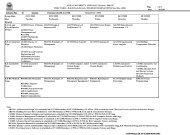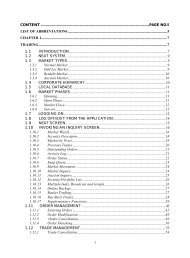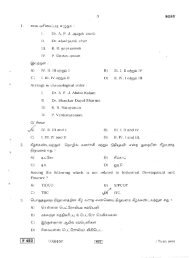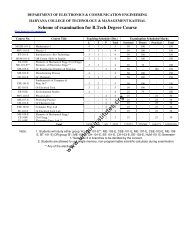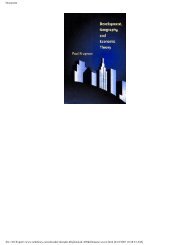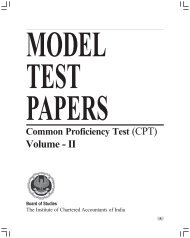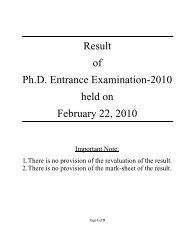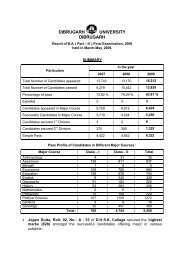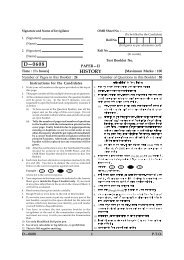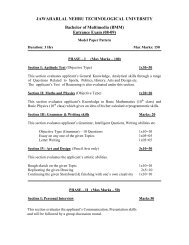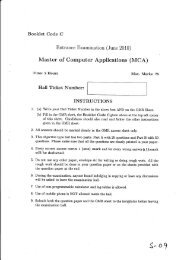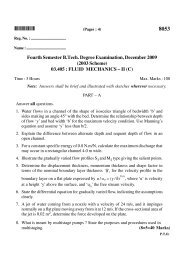UNIT – I Lesson 1 HRM – AN OVERVIEW Lesson Outline Nature of ...
UNIT – I Lesson 1 HRM – AN OVERVIEW Lesson Outline Nature of ...
UNIT – I Lesson 1 HRM – AN OVERVIEW Lesson Outline Nature of ...
You also want an ePaper? Increase the reach of your titles
YUMPU automatically turns print PDFs into web optimized ePapers that Google loves.
STORING<br />
Same <strong>of</strong> the applications which could be computerized and the nature and type <strong>of</strong><br />
information that can be recorded and stored are described below.<br />
PERSONNEL ADMINISTRATION<br />
It will contain information about each employee, such as name, address, date <strong>of</strong><br />
birth, date <strong>of</strong> joining the organization, and information about next <strong>of</strong> kin and family. The<br />
facility should allow the user to maintain a number <strong>of</strong> address records such as permanent<br />
home address, local postal address, and the address <strong>of</strong> next <strong>of</strong> kin.<br />
SALARY PARTICULARS<br />
Salary review procedures are an important function <strong>of</strong> the human resources<br />
department. Details <strong>of</strong> present salary, last increase and the proposed increase will all be<br />
compiled and stored.<br />
LEAVE / ABSENCE RECORDING<br />
An important requirement <strong>of</strong> HRIS is providing comprehensive and accurate<br />
method <strong>of</strong> controlling leave and absences. A complete leave history for each employee,<br />
days <strong>of</strong> absence, delay in reporting are all stored. Eligibility <strong>of</strong> leave, medical, maternity<br />
leave under credit, leave encashment, eligibility are all stored.<br />
SKILL INVENTORY<br />
HRIS is used to record acquired skills and monitor a skill database at both<br />
employee and organizational level. This will give the necessary information to identify<br />
employees with necessary skills for certain positions or job function.<br />
MEDICAL HISTORY<br />
The HRIS may be used to record occupational health data needed for industrial<br />
safety purposes, accident monitoring, exposure to potentially hazardous materials, and so<br />
on. For example, hearing loss, nervous debility in certain work areas may be monitored<br />
and results recorded on HRIS. The records <strong>of</strong> periodical medical examinations may also<br />
be maintained.<br />
ACCIDENT MONITORING<br />
The system should record the details <strong>of</strong> the accidents for the injured employees.<br />
This could highlight accident prone areas or accident prone times within the organization.



